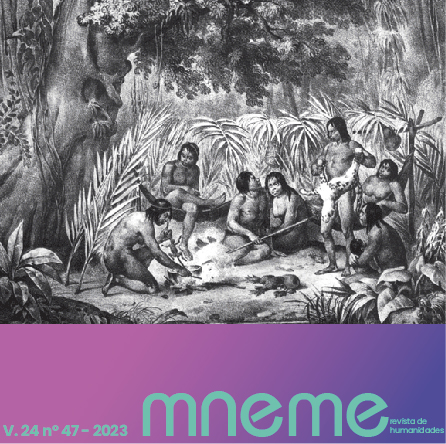THE TIKUNA ETHNICITY FROM UMARIAÇU INDIGENOUS TERRITORY, ALTO SOLIMÕES, BRAZILIAN AMAZON: TERRITORIALITY AND SOCIAL-ENVIRONMENTAL DYNAMICS
Resumo
The Tikuna population is settled in a wide range of land throughout the Solimões river channel in the Alto Solimões region. The Tikuna territories are marked by the organization of Tikuna individuals in association with indigenous groups. During the process of territorial conquest, in the 80’s and 90’s, the indigenous territories were divided into different communities. This fragmentation led to the formation of territories of different sizes and environmental conditions, either close or far away from the cities of the Alto Solimões region. Social-environmental configurations have reduced the indigenous territories; transformations are related to the Solimões river’s natural modifications and to anthropic modifications such as the Tabatinga International Airport. This study aims to demonstrate the Tikuna territories in Umariaçu and the socio-environmental dynamics that have been reducing their spaces and natural resources. The study emphasizes the environmental and social disturbances in an indigenous territory close to Tabatinga municipality.
Downloads
Downloads
Publicado
Como Citar
Edição
Seção
Licença
Copyright (c) 2023 Mneme - Revista de Humanidades

Este trabalho está licenciado sob uma licença Creative Commons Attribution-NonCommercial-ShareAlike 4.0 International License.
Esta revista proporciona acesso público a todo seu conteúdo, seguindo o princípio que tornar gratuito o acesso a pesquisas gera um maior intercâmbio global de conhecimento. Tal acesso está associado a um crescimento da leitura e citação do trabalho de um autor.
Mneme se reserva o direito de efetuar, nos originais, alterações de ordem normativa, ortográfica e gramatical, com vistas a manter o padrão culto da língua, assegurado o padrão estético do periódico, respeitando, porém, o estilo dos autores. Os trabalhos publicados passam a ser propriedade da Revista Mneme, ficando a sua reimpressão total ou parcial, sujeito à autorização expressa de sua direção. Os originais não serão devolvidos aos autores. As opiniões emitidas pelos autores dos artigos são de sua exclusiva responsabilidade.













 English
English Español (España)
Español (España) Português (Brasil)
Português (Brasil)
